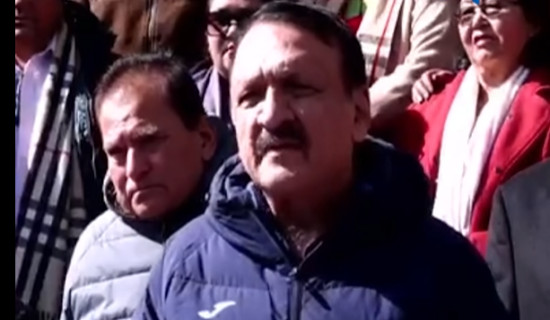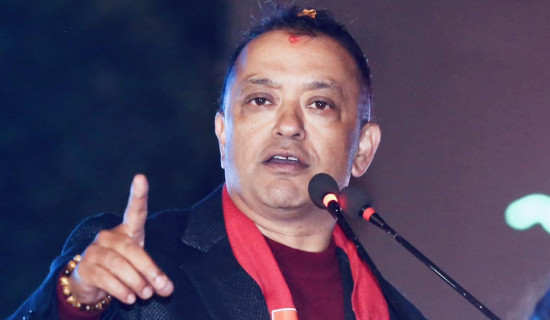- Saturday, 17 January 2026
For Vibrant Democracy
Democracy is rightly touted as the best form of governance due to its promise and emphasis on individual rights and freedom, ensuring that no one is subjected to the despotic diktats of a ruler. Instead, in democracy people are in a position to call the shots. Globally, people's yearning for such privileges has prompted them to sacrifice or/and risk everything, countless lives included. In Nepal, like elsewhere, democracy has been earned through our martyrs' untold sacrifices and several political movements. The abolishment of monarchy and the subsequent promulgation of constitution in 2015 marks a key milestone in our journey towards democracy. Our constitution has been quite generous and liberal in granting every conceivable fundamental and other rights – from rights heath to food to employment – alongside envisaging a welfare state.
But, despite lofty promises and ideals, it would be fair to state that we have a long way to go in our march towards fulfilling the aspirations of the people as well as the constitutional pledge. Problems in its implementation abound. For one, strong economic foundation to materialise at least a few of them remains a far cry. Fed up with a dire dearth of employment opportunities, youths leaving the country out of desperation in alarming numbers even for countries fraught with grave risks forces us to question whether our democracy has delivered. What promise does it hold when it fails to deliver even the most basic of the necessities? It doesn't mean much.
Second, a flurry of corruption scandals – from gold-smuggling to land grabbing to many financial irregularities – in recent years have continued to misuse the tax payers' money, not to mention deprive the general public of the financial means critical for their lives and livelihoods. When corrupt civil servant abuse public office for private gain, competency of public and social institutions suffers.
Third, particracy, through which politically-affiliated people are appointed in key state organs and government mechanisms in a blatant disregard for meritocracy, also compromises democracy. To get away with this problem, we must be vigilant and vocal to let the culture of meritocracy take hold. Fourth, a lack of strong legal and policy framework, strong leadership, and law enforcement agencies has made it difficult to tackle growing corruption and enhance good governance, one of the pillars of democracy. We must also give credit where it's due: Major decisions have also been done to consolidate democracy.
Today in much of the world, including the so-called matured and advanced democracies, democracy is said to be stagnant at best; and in decline at worst, signaling that democracy is in trouble globally, says a major recent report. This may explain why in many countries the trend of democracy giving way to dictatorship – military or otherwise – that too with surprisingly little resistance is in relentless march. Forget the global south, even in the 'bastions' of democracy like the US and Europe, populism is on the rise, eroding public's faith in democratic institutions and norms.
Everything is not doom and gloom, though. The rise of social media has given voice to the voiceless to make themselves and their grievances heard, empowering the less-privileged and marginalised, enhancing their participation in democratic process and lifting them to the mainstream from the margin. Though it has also been abused to spread disinformation, hate speeches and disrupt communal harmony and weaken democracy, social media's judicious use stands to bode well for democracy overall, outweighing its benefits over risks. For all its vulnerabilities, democracy has no alternative. Guarding it from potential pitfalls is imperative for its robustness and vibrancy.












-original-thumb.jpg)

-original-thumb.jpg)
-original-thumb.jpg)
